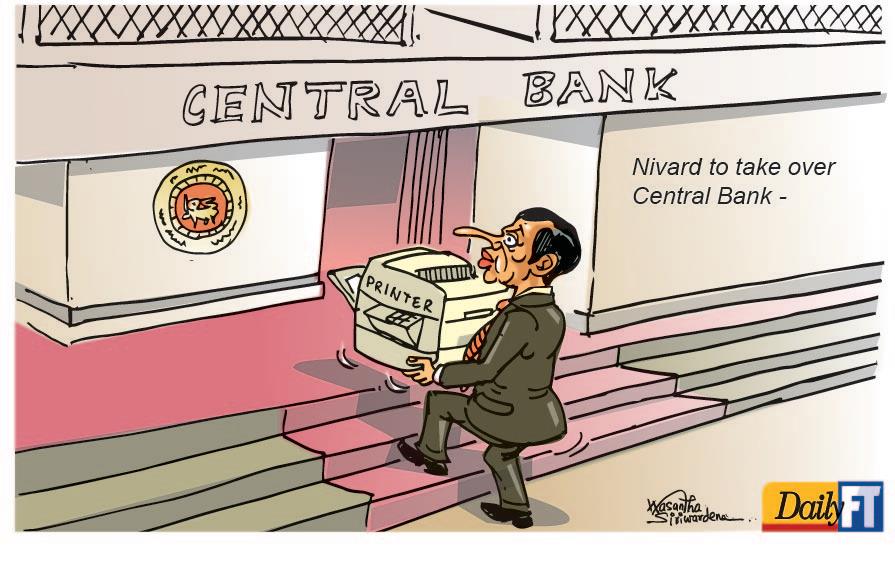The ousted regime’s prioritization of political expediency over the national interest coupled with their currency printing spree exercise aimed at keeping interest rates at a low level, resulted in the country’s economic woes, Central Bank Governor Dr Nandalal Weerasinghe said.
“Today the SME sector is badly hit due to high interest rates. The reasons for it is traceable to the ousted regime keeping interest rates at a low level together with heavy money printing. This resulted in the current high inflation rate in the country, Dr Weerasinghe told the media at the monthly monetary policy review meeting held at the Central Bank auditorium last week.
Dr. Weerasinghe added: ‘Steeply rising prices are a bigger threat to businesses than high interest rates which will have to be maintained for a time until inflation starts to ease.
‘Sri Lanka is now experiencing the result of past money printing and if rates are cut now, runaway inflation could be the result.
“Higher interest rates are a cost to any business, but inflation drives up all costs. Interest rates are raised by a Central Bank as an independent decision taking into account economic conditions and inflation.
“It is said that the rupee fell from Rs 200 to Rs. 360 to the US dollar in 2022 after two years of money printing to suppress rates and inflation had hit close to 70 per cent by September.
“Interest rates were kept down for a time. In the recent past enough money was printed. We are seeing the result of that.”
Meanwhile, a top economist who preferred anonymity told The Island Financial Review that ex-President Gotabhaya Rajapakse totally messed up the economy, independent of the Covid crisis. Towards the end of 2019, and in early 2020, the government enacted deep tax cuts in fulfilment of an election promise, presumably to help its election backers and stooges. This led to the loss of approximately one million taxpayers between 2020 and 2022. Therefore, the country lost more than Rs 500 billion in tax money per year, due to tax cuts.
The economist said that this year the economy is expected to contract by around 8 per cent of gross domestic product as investment and consumption falls as efforts are made to stabilize the economy, compounded by lack of capital inflows due to weak confidence and banks also repaying foreign credits.


